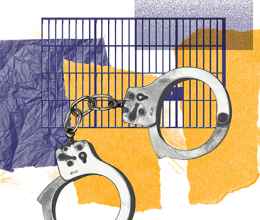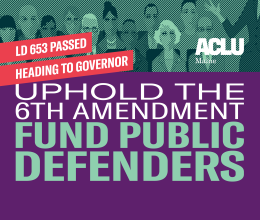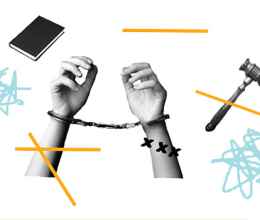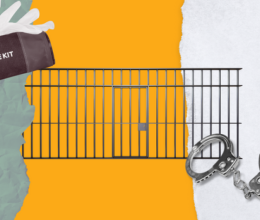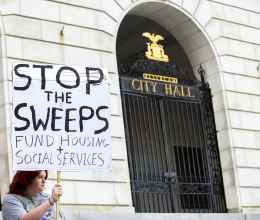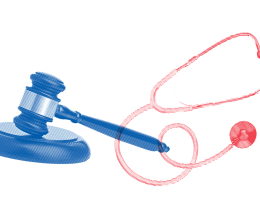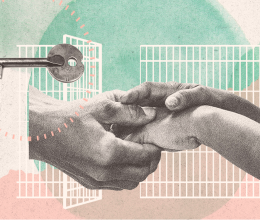AUGUSTA - Guided by science, compassion, and a commitment to community health, leading advocacy groups and direct service providers today call on Maine government leaders to take immediate and coordinated steps to mitigate the risk of COVID-19 for incarcerated Mainers.
In a letter to Gov. Janet Mills, Maine Department of Corrections Commissioner Randall Liberty, District Attorneys, and sheriffs, the network of Maine-based advocates, health care and social service providers, harm reductionists, and directly-impacted community members lays out a clear plan to safely reduce the state’s prison and jail populations, protect those who remain inside, and provide meaningful support for individuals upon release.
“The closed, confined nature of correctional facilities – in which detained people eat meals side by side, share bathrooms with dozens of others, sleep multiple people in a room, and come in frequent, close contact with staff – makes them especially susceptible to the rapid spread of the COVID-19 virus,” the letter reads. “Furthermore, people incarcerated in Maine are more likely than the general population to suffer from chronic health conditions that increase the risk of serious illness or death as a result of COVID-19. Indeed, across the country, COVID-19 has disproportionately harmed poor people and people of color, both of which are also overrepresented in our prisons and jails.”
COVID-19 has already reached Maine’s prisons and jails. Immediate action is needed to avoid a devastating outbreak that could have far-reaching implications.
The statewide network’s key demands include:
- The Governor and/or the Department of Corrections should exercise their authority (via commutation or reprieve, medical furlough, or community release) to release incarcerated people through a process of individual review that ensures safety for all communities, families, and households;
- State should establish programs, resources, or systems (housing and financial supports, food assistance) specifically designed to facilitate a safe re-entry for formerly incarcerated people;
- State should prioritize the release of and creation of transition plans for youth currently in detention; and
- Where release is not possible, state, counties, and facility administrators should utilize all available resources, including expedited testing, to ensure that incarcerated people who remain in facilities, as well as staff, stay as healthy and safe as possible in a congregate setting.
These actions are bold, yet they are also safe, ethical, and achievable, say the groups.
"As a physician, I don’t get to have 'opinions' - I have to work with actual data. The evidence is that people who are incarcerated, just like anyone else living in close quarters, are at a greater risk of illness and death from this virus than are people who are in a position to practice social distancing, as well as better hygiene and access to care. If the State of Maine does not endorse capital punishment, then we need to stand by that policy and prevent de facto execution by decarcerating now," said Dr. Merideth Norris, DO, FACOFP, owner and practitioner at Graceful Recovery in Kennebunk and immediate past president of the Maine Osteopathic Association.
Thus far, the Maine criminal justice system’s response to this particular aspect of the COVID-19 crisis has fallen short. While there have been promising initial strides - for example, toward reducing the population of county jails - there has been no coordinated, consistent, or transparent statewide effort to address the health and safety of incarcerated people who are among the most vulnerable members of our communities. The network’s letter today is the first step in a concerted effort to protect these individuals.
Today’s letters will be followed by a Week of Action directed at Maine’s criminal justice decision-makers, including circulating a petition that allows individuals to lend their voice to this campaign.
The full text of the letter is available here (note the letter was sent under separate cover to various officials):
https://www.aclumaine.org/sites/default/files/coalition_letter_to_mills_admin_04.20.20.pdf
Letter Signatories:
- ACLU of Maine
- GLBTQ Legal Advocates & Defenders
- Health Equity Alliance
- Jewish Action Maine
- Maine Access Points
- Maine Association of Criminal Defense Lawyers
- Maine Democratic Socialists of America
- Maine Drug Policy Lab at Colby College
- Maine Family Planning
- Maine Inside Out
- Maine People’s Alliance
- Maine Prisoner Advocacy Coalition
- Maine Youth Court
- Maine Youth Justice
- Martin Luther King, Jr. Fellows
- Mindbridge
- NAACP Prison Branch
- No Penobscot County Jail Expansion
- Portland Outright
- Portland Overdose Prevention Society
- Recovery Advocacy Project - Maine
- Resources for Organizing and Social Change
- Restorative Justice Institute of Maine
- Restorative Justice Project Maine
- Survivor Speak USA
- The Church of Safe Injection


